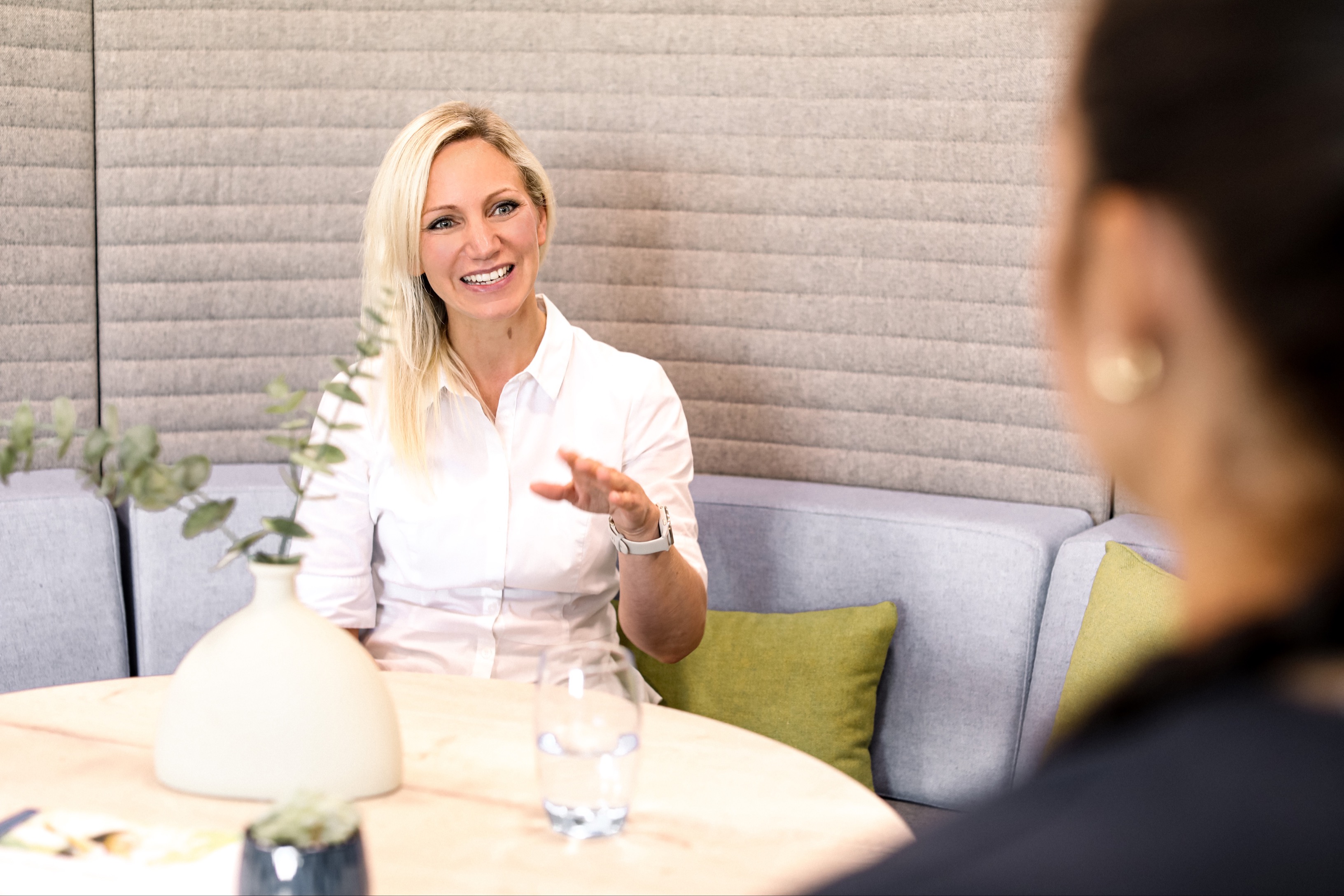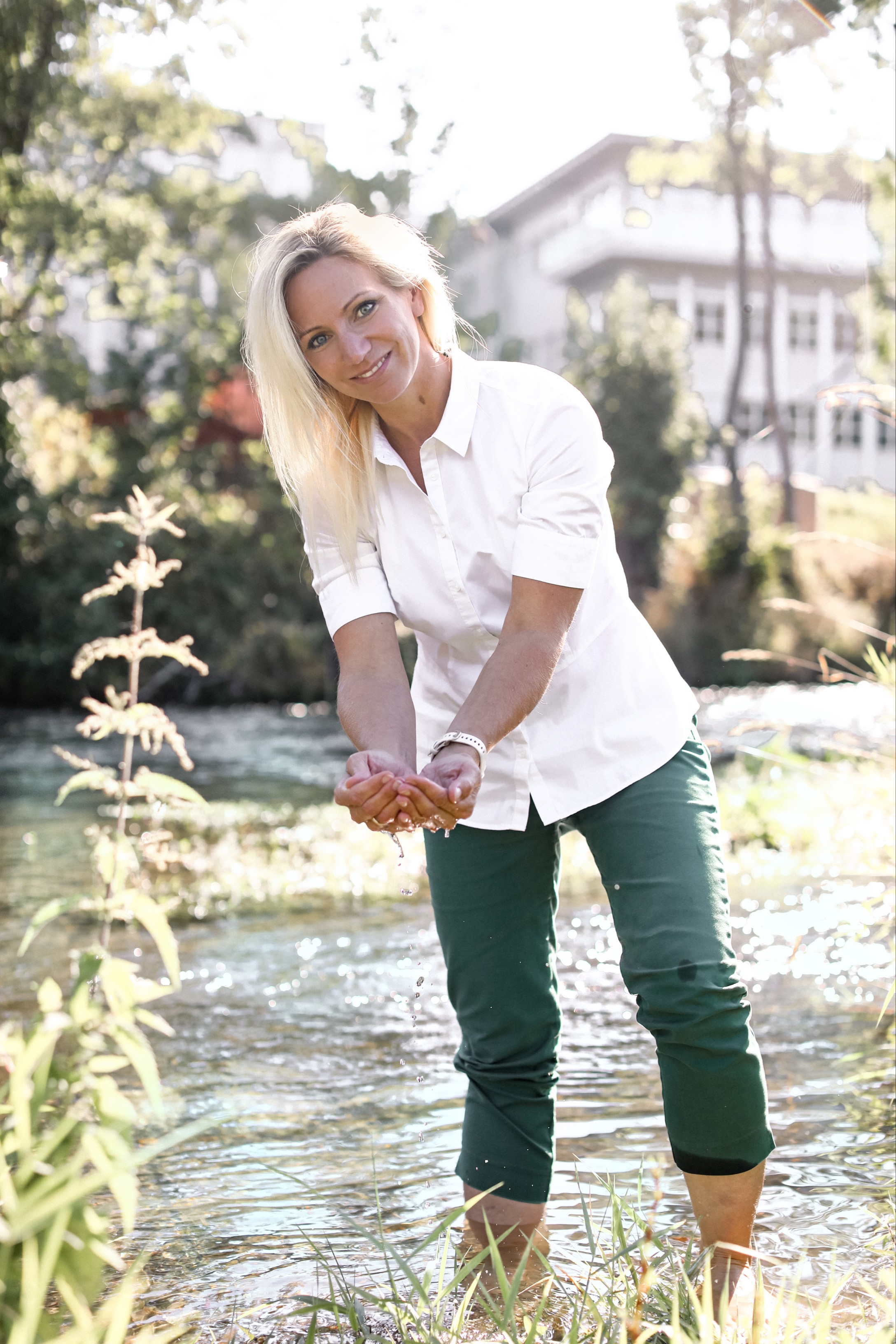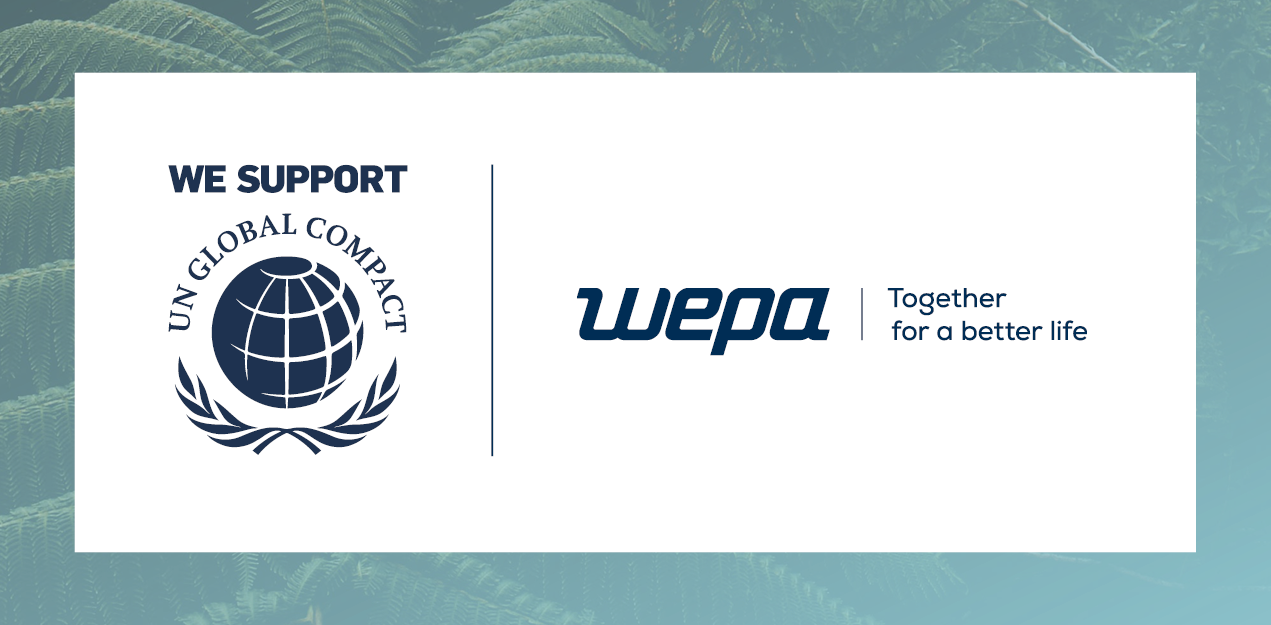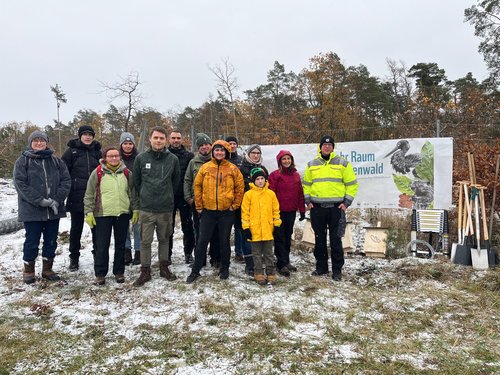“Sustainable water management has been an issue for WEPA for many years. For us, sustainability is not a trend that happened overnight but something firmly anchored in our corporate DNA.”
The meaning of water for WEPA and the importance of World Water Week
My Interview with Katrin Krücke,
Sustainability Manager Technology, WEPA
August 2022
by Katharina Radloff | Digital Communications Manager, WEPA
Dear Readers,
The summer is dry and nature is moaning and groaning. A sustainable use of water is more important than ever. This important topic also keeps Katrin Krücke busy, who deals with it every day at WEPA.
Hello Katrin, please tell us a little about yourself and your role at WEPA.
I’m 37 years old and I’ve been with WEPA since 2009. I’ve already passed through various positions here. I “grew up” in the operational business of the factory – starting out as a laboratory manager and working my way up to be an operations manager. I took parental leave twice in between, and I’ve now been supporting the Sustainability team since November 2021 where I’m responsible for the two fields of action “Future Fibres” and “Operational Efficiency” from our sustainability strategy. What’s especially important for us is energy and CO2 reduction as well as a sustainable water footprint.
Thank you. Can you please explain to us the significance that water has for WEPA.
We operate in a water-intensive industry. Without water we wouldn’t be able to produce our hygiene products, which are so essential for our consumers. Water is particularly important in our production for dissolving the fibres, and also as a carrier material throughout the complete production process.
Very interesting! In concrete terms, what does sustainability mean for WEPA when it comes to water?
The resource of water is becoming increasingly scarce. For many years in our factories we’ve been trying to run the water cycles very tightly and to perform water purification as intensively as possible. Not only to meet legal requirements, but mainly to use the water in a resource-conserving way. This means that the water can be discharged directly with a very good quality, or else sent to the purification plant to be further treated. It also means that a large part of the water we withdraw can be returned to the river basins or water catchment areas, and we can use the fresh water for our production processes.

That sounds well thought out. Does the dry summer this year have anything to do with it?
No,sustainable water management has been an issue for WEPA for many years. For us, sustainability isn’t just a trend that happened overnight, but something firmly anchored in our corporate DNA.
I see. And how exactly do you implement this approach?
As an example, in recovered paper production we try to leave the process water in the stock preparation so that we can get by with less fresh water at the paper machines. We use stock that’s concentrated higher which we then dilute again with fresh water. This way we can cycle through the polluted circuit water more often where it doesn’t interfere.
What else is WEPA doing to protect water?
Starting last year, we launched a major project with WWF Germany in the area of water stewardship, which is concerned with the water risks of global locations. We’re aware that as an intensive water user we’re not only exposed to water risks such as drought and flooding, but also pose a risk to river basins because of our own water consumption. We take a close look at both sides and accept our responsibility. The target we’ve set ourselves together with the WWF can soon be read in our next Sustainability Report. As a company that looks to the future, it’s important for us to take responsibility above and beyond our sites. Worth mentioning in that respect is how we help together with partners to protect river basins and biodiversity in projects.

That sounds really good. Is there a project or partnership that you’re particularly keen on?
Yes, definitely the partnership with the WWF, because we’re not only working together on water risk and water stewardship but also on biodiversity. A good example of that is the joint project we're doing on the Middle Elbe river. Another good example is the project with our partner UPM which is all about peatland rehabilitation in Finland. This is great because peatlands not only have a positive impact on biodiversity, but in principle on the entire climate. All peatlands worldwide account in total for only 3% of the earth's surface area – but they absorb twice as much CO2 as all of the Earth's forests! Which is really unbelievable!
Many thanks for that insight. Tell us what World Water Week is exactly.
Launched thirty years ago by the Stockholm-based International Water Institute, World Water Week is all about exploring new ways of managing water and facing up to humanity’s biggest water challenges – ranging from food security and health to agriculture, technology, biodiversity and climate. The motto this year is “Seeing the Unseen: The Value of Water”. For me it’s a very apt slogan, because we humans are slow to realise how important the impact of climate on water is. Whether privately or at WEPA, I increasingly see more and more examples that make me aware of the importance of water and its sustainable use. I witness the dryness directly when I look into my own garden, and the fields are brown, the trees are dry and acorns drop from the branches even though they’re not yet ripe. So nature is stressed and needs water. But the industry is also suffering – some suppliers have had to even stop their production.
That’s a bit frightening.
Yes, definitely. WEPA has always been committed to sustainability and sustainable water management, and it’s not just a trend that we’ve jumped on because there’s a lot of media coverage about it. Working out our goals with the WWF didn’t happen overnight but took over two years – it was a conscientious process that supported our sustainability goals.
Will there be any specific changes then?
This year we’re focusing a lot on internal communication at WEPA, and cross-location meetings are intended to lay the foundation for that. The sites can query and question each other, swap ideas and find solutions. For us, it’s not just about saving water but about taking the idea further in terms of water stewardship at an economic, ecological and social level. We do this in cooperation with the local industries which are also located along the river basins, but also with the population at large. By the way, this exchange among each other is a request that’s reached us from several of the factories and sites. I think it’s good that there’s so much interest and that people want to forge new paths together, and not because we have to, but because we want to. In fact, in a nutshell, that’s precisely what WEPA is all about.
Dear Katrin, many thanks for your time and for this interesting interview.


![[Translate to Englisch:] Arbor Day](/fileadmin/_processed_/7/b/csm_1_406363b398.png)